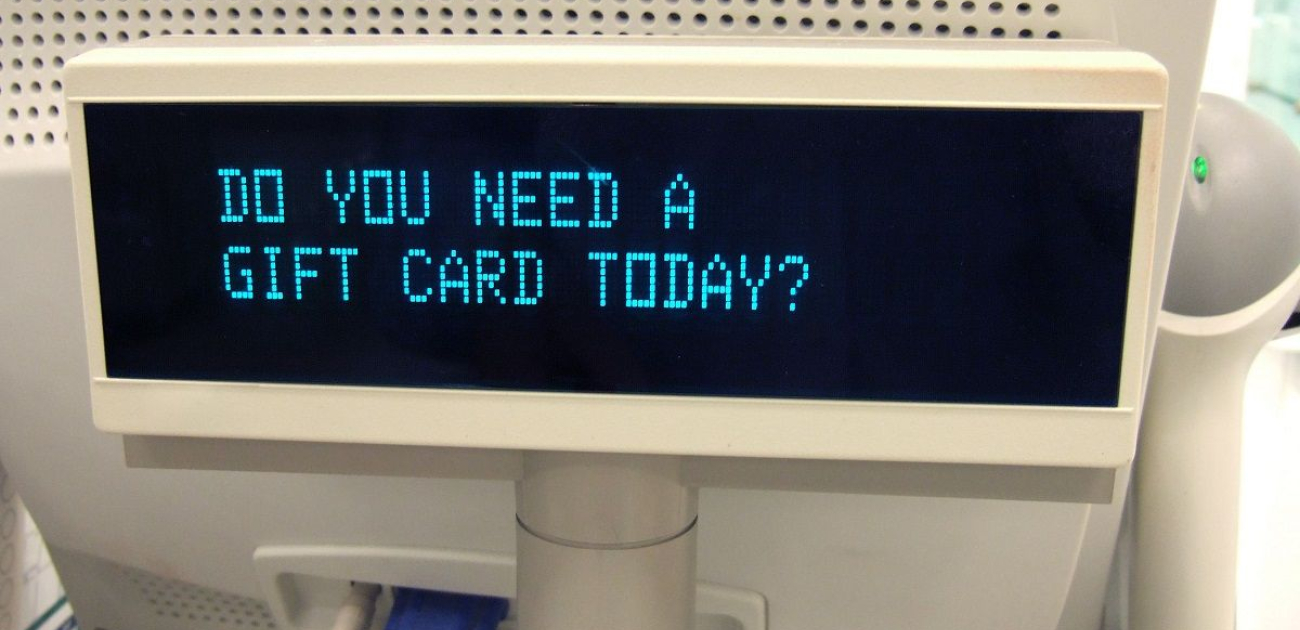The Nightmare Before Christmas?
It is a little-known fact that, in 1994, Blockbuster video was the first store to display pre-paid gift cards for sale. Unlike VHS rentals, the gift card industry has only grown in popularity. Gift cards from major retailers are at the top of many holiday wish lists. Considered a more polite version of cash, gift cards take the stress and guesswork out of holiday shopping. They also allow recipients to skip the dreaded “returns” line and choose the specific items, models, sizes, and colors they desire.
With the holidays approaching, gift cards have found popularity with a new group: plaintiffs’ lawyers. In late October, a small number of plaintiffs filed over 100 virtually identical class action lawsuits in New York federal courts. These lawsuits allege that retailers, restaurants, and other businesses violate Title III of the Americans with Disabilities Act and the New York City and State Human Rights Laws by failing to provide gift cards with Braille, the tactile writing system of raised dots that can be “read” by people who are blind or have low vision.
Title III of the Americans with Disabilities Act (ADA) prohibits discrimination against disabled persons in places of “public accommodation.” Generally, businesses that provide goods or services to the public must provide disabled individuals with the same type of access to those goods and services as they provide to individuals who are not disabled, and must remove certain existing barriers to access. Although individuals may have legitimate claims under Title III—and the overall goal of increasing accessibility is laudable—the majority of these lawsuits are filed by serial litigants and a small group of attorneys who are largely apathetic about the substantive claims and, instead, focus on quick settlements for nuisance amounts. The motivation for these serial litigants is the ADA’s private enforcement incentive. Plaintiffs who prevail on their claims generally recover attorneys’ fees, expert witness costs, and other legal expenses.
Although the ADA was enacted long before the ubiquity of websites and e-commerce, businesses are frequently targeted with claims that their websites and mobile applications are inaccessible to blind and visually-impaired individuals. Now, using similar reasoning, plaintiffs have alleged that gift cards must be “independently accessible” and that they and all other legally blind individuals have been denied equal access to the goods and services available through gift cards. In addition to seeking statutory and punitive damages and attorneys’ fees, these plaintiffs request that retailers modify their policies and provide auxiliary aids with gift cards. Among other things, these plaintiffs demand that (1) the name and denomination of every retail gift card and its packaging be printed in Braille; (2) other pertinent information, such as terms of use, privacy policies, ability to ascertain gift card balance, and restrictions be printed in Braille on the card, affixed to the card or inserted in the packaging; and (3) the size and texture of Braille gift cards be different from regular gift cards to allow blind and visually impaired consumers to find them. The demands raise complex questions relating to the potential expense and burden with implementation.
The plaintiffs’ novel theories may be distinguishable from ADA claims against websites and mobile applications in a number of ways. For example, the ADA does not specifically require the use of Braille. Instead, businesses have various options to provide effective communication to individuals with disabilities. Moreover, the ADA does not require businesses to alter “inventory to include accessible or special goods that are designed for, or facilitate use by, individuals with disabilities.” These and other legal issues may provide businesses with viable defenses. However, the plaintiffs’ legal theory about requiring Braille gift cards is in its infancy. It is too early to predict whether it will gain traction and expand to other types of written materials. In the meantime, businesses should be prepared to address the variety of litigation risks under the ADA and consult experienced legal counsel to address any concerns.
Do you want more information?
 Matthew P. Horvitz
Matthew P. HorvitzMatt Horvitz is a trial lawyer with extensive experience with all phases of litigation, dispute resolution and avoidance. Matt believes that litigation is a tool for protecting his clients' interests and achieving their objectives, whether through trial and appeal or negotiated settlement. His approach is client-centered, pragmatic, and above all focused on achieving efficient results.

